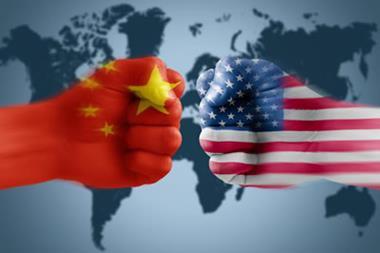The latest WEF Global Risks Report highlights the need for a new approach to tackle increasing complexity, interconnectivity and high impact of risks

The increasing interconnectivity, complexity and impact of risks calls for a more holistic approach to risk management, according to Cecilia Reyes, chief risk officer at Zurich Insurance Group.
Speaking at the launch of the World Economic Forum’s Global Risks Report 2017 yesterday, Reyes said companies need to address the increasing complexity, interconnectivity and high impact of risks such as increasing inequality, social polarisation and climate change.
“Risk management is becoming more and more important. Companies need a holistic perspective on managing the risk at company level. Risk strategy must be embedded in the business strategy and because of the complexity you need more complex tools to address and mitigate the risks.”
However, she added that these risks cannot be addressed in silo. Collaboration is the key word of the Global Risks Report 2017, because of the complexity of the issues that are exacerbating these risks. The WEF acknowledges that this will be challenging, but developments in 2016, especially in the space of climate risk, show that collaboration can work.
Collaboration similar to that on climate change is also needed to address the challenges of the fourth industrial revolution and social instability, Reyes said.
The WEF believes that the tremendous political change seen in 2016, such as the UK’s decision to leave the EU and the election of Donald Trump as the next president of the US, is the result of highly interconnected political, economic and social risks crystallising.
“What we have seen in 2016 on the political front raises some questions on the health of democracy itself, at least the liberal democracy that has underpinned global prosperity based on globalisation and free trade,” Reyes noted.
“As we’ve seen, much of the population are looking at globalisation as the source of all kinds of problems, and therefore there is a risk that the world will start to turn away from globalisation. However, globalisation is not the driver of these pressures. It is the fourth industrial revolution that, combined with the lack of public trust in the establishment and institutions, and growing discontent with capitalism itself, is giving rise to a much more inward-looking focus on national interest.”




















No comments yet